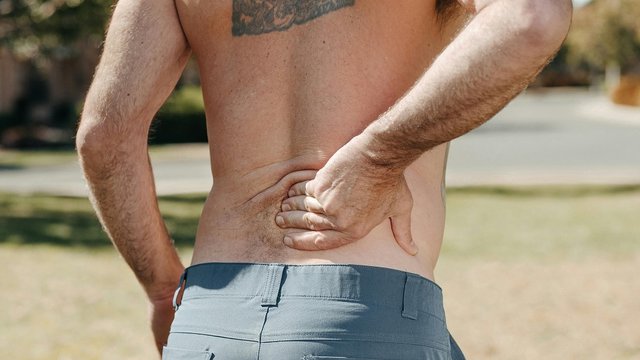Is Back Pain Inevitable As You Age
Your body, like your automobile, is more likely to lose functioning as it ages. However, much like your automobile, the more you care for it when it is young, the greater your chances of preventing the aches and pains of age. Although aging can exacerbate most physical problems, it is not usually the root reason.
Back Pain Due to Aging
Regardless of age, a variety of factors can contribute to back pain. Injuries, strained muscles, damaged ligaments, and spinal abnormalities are among the most prevalent causes. While all of these conditions are more likely to occur as you become older, age is not the major reason.
However, as you become older, you may anticipate to lose flexibility and functioning in all of your bodily parts. Here's what aging may do to your back.
Disc Degeneration
Your spine is intended to flex and twist thanks to the bone vertebrae and jelly-like discs that connect them. As you age, the discs wear down and lose their cushiony covering. When bones rub together, you get back ache.
A Narrowed Spinal Column
Another way age affects your back is that your spine narrows. This is termed spinal stenosis. The decreasing spinal column eventually presses on the nerves that travel through, causing discomfort.
Osteoarthritis
Although osteoarthritis (OA) does not affect just the elderly, the majority of persons over the age of 60 suffer from it to some extent. That's because OA is caused by the wear and tear of your cartilage over time. Joint stiffness and discomfort occur when the slick cushion inside your joints deteriorates, which is prevalent in elderly adults.
Weak Muscles and Bones
Age also depletes your young strength. Your back's support system weakens as you lose muscle mass and bone density. This indicates that your muscles and skeletal system may be functioning abnormally, resulting in aches and pains.
Ways to Avoid Age-Related Back Pain
Now for the good news: most age-related back pain may be avoided or reduced by following a few simple suggestions.
Maintain a strong core
Your core muscles are located in your torso and help your pelvis, abdomen, and back work together to support your body. A strong core promotes balance and stability, allowing you to accomplish everyday movements like lifting, bending, and reaching without back pain;
Eat right
Believe it or not, your food has a huge impact on your back health. Consume adequate amounts of vitamin D and calcium to maintain healthy bones and muscles. If you are overweight, make a commitment to reducing those extra pounds, as they place additional strain on your spine and joints;
Position yourself appropriately
Lifting incorrectly is one of the leading causes of back discomfort and injury. To maintain your back health, raise your legs, keep your spine straight, and never twist while lifting. Keep what you're lifting close to your body.
Position is also crucial while seated. Maintain appropriate posture and develop a practice of sitting upright without slouching. Slumping will eventually harm your back and create discomfort. This is sometimes attributed to aging, yet it is entirely avoidable. Your sleeping posture is also important. Get a solid mattress that provides enough support;
Quit smoking
Smoking reduces blood flow in the spine and may prevent crucial nutrients from reaching your discs. If you suffer an injury, smoking might impede the healing process;
Manage your mood
Emotional and mental tension manifests as tight, aching muscles. Reducing stress in your life or finding ways to reduce it will help your back pain.
Depression is another ache in the back. Its primary effect is weariness, which may hinder you from exercising and strengthening your core. A weaker musculoskeletal system increases your likelihood of experiencing back discomfort.
The bottom line
You can't completely eradicate age-related back pain, but you can certainly avoid a lot of it by taking good care of yourself.
